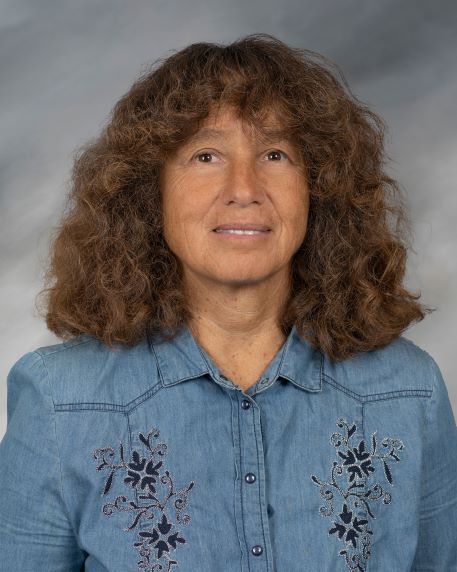Maria Bykhovskaia, PhD
Narrative bio
Dr. Bykhovskaia is a tenured Professor at the Department of neurology at Wayne State University School of Medicine. Her lab has expertise in cellular, molecular, and computational neuroscience, and the research program in the lab is focused on fundamental mechanistic problems in synaptic transmission. Her Ph.D. training was in computational biophysics and molecular modeling. Subsequently, she used a postdoc in neuroscience to initiate a career devoted to the study of presynaptic mechanisms and plasticity. As a PI, she developed in her lab the expertise in electrophysiology, live confocal imaging, and electron microscopy, and these experimental approaches are combined with mathematical and computational modeling. The research in the lab has been continuously supported by the National Institute of Health and the National Science Foundation. She has served as a member of review panels at the National Institute of health, the National Science Foundation, and the National Academy of Sciences.
Research Summary:
Our research is focused on molecular machinery that controls the release of neuronal transmitters and from nerve terminals. Neuronal transmitters are packaged into synaptic vesicles and released by fusion of the vesicles with the neuronal membrane. We study the mobilization, docking and fusion of synaptic vesicles. These processes are highly dynamic and plastic, and disruptions in their regulation can produce severe neurological disorders, such as epilepsy, autism, Alzheimer’s and Huntington’s diseases, and mental retardation.
We employ genetically modified mice to investigate the role of vesicle associated protein synapsin. Since synapsin deficiency produces epilepsy in animal models and in humans, we employ genetic, electrophysiology, and molecular biology approaches to unravel the molecular and cellular pathways, which allow the synapsin proteins to control excitability in neuronal networks in the brain.
Another line of our research addresses a fundamental problem of structural synaptic plasticity. Intense neuronal activity can lead to the structural modifications of neuronal connections, and this phenomenon is thought to underlie the processes of learning and memory. We use Drosophila neuromuscular junctions to study the activity-dependent modifications in neuronal connections, since this model organism provides excellent opportunities for creating genetically modified animals and observing neuronal growth and differentiation in a real time.
Recently, we focused on the question of how the fusion molecular machinery regulates the latest stages of the fusion of synaptic vesicles with the neuronal membrane. We combine molecular modeling, Drosophila genetics, and electrophysiology, aiming to develop computational tools, which would allow us to manipulate the fusion machinery via targeted mutagenesis.
Graduate
Leningrad Polytechnic University M.S. 1987 Biophysics
Sechenov Institute of Evolutionary Physiology Ph.D. 1992 Computational Biophysics
Professor of Neurology and Anatomy
Fellowships
University of Virginia PostDoc 1997 Neuroscience
